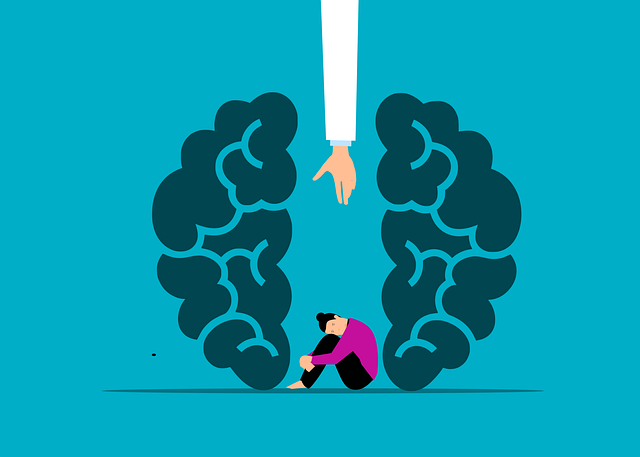The stigma around mental illness significantly hinders access to care, particularly in Longmont Alcohol Abuse Therapy settings, disproportionately affecting marginalized communities. By fostering empathy through Emotional Intelligence and breaking down stereotypes, we can create an environment encouraging open conversations about mental health. Community education and awareness programs play a vital role in reducing stigma and promoting understanding of conditions like anxiety relief and alcohol abuse. Storytelling humanizes these issues, inspiring support and advocacy for policy changes that ensure equal access to quality care, including trauma support and depression prevention services, in Longmont Alcohol Abuse Therapy.
Mental illness stigma remains a significant barrier for individuals seeking help. This article explores targeted efforts to reduce this societal burden, focusing on strategies from diverse perspectives. We delve into the profound impact of stigma on mental health seekers and highlight initiatives like Longmont Alcohol Abuse Therapy, which provides safe spaces for recovery. Additionally, we discuss community education, storytelling, policy advocacy, and other powerful tools essential in breaking down stereotypes.
- Understanding Stigma: Its Impact on Mental Health Seekers
- Longmont Alcohol Abuse Therapy: A Safe Space for Recovery
- Educating Communities: Breaking Down Stereotypes
- The Power of Storytelling and Personal Testimonies
- Policy Changes and Advocacy: A Path to Systemic Shift
Understanding Stigma: Its Impact on Mental Health Seekers

Stigma surrounding mental illness can have profound effects on individuals seeking help. Often, those struggling with conditions like depression, anxiety, or substance abuse avoid Longmont Alcohol Abuse Therapy due to fear of judgment and discrimination. This internalized shame can prevent people from accessing much-needed support and treatment, leading to prolonged suffering. The impact is especially severe for marginalized communities, who might face additional barriers due to cultural, social, or economic factors exacerbating the stigma.
Understanding the far-reaching consequences of stigma is crucial. It perpetuates a cycle where individuals with mental health issues isolate themselves, hindering their ability to develop effective coping strategies like Self-Care Routine Development for Better Mental Health and Stress Reduction Methods. Emotional Intelligence plays a vital role in combating this by fostering empathy and breaking down stereotypes associated with mental illness. By reducing stigma, communities can create an environment that encourages open conversations about mental health, ultimately leading to better access to care and improved outcomes for those struggling.
Longmont Alcohol Abuse Therapy: A Safe Space for Recovery

In the heart of Longmont, Colorado, a haven for recovery and healing awaits those struggling with alcohol abuse. Longmont Alcohol Abuse Therapy (LAAT) offers a safe, supportive environment where individuals can embark on their journey to inner strength development. This specialized therapy center recognizes that mental illness, particularly substance abuse, requires sensitive treatment and tailored guidance. As such, LAAT provides comprehensive Depression Prevention and Crisis Intervention services, addressing the complex needs of its clients.
The dedicated therapists at LAAT are equipped with the knowledge and compassion to help individuals navigate their unique challenges. Through personalized therapy sessions, clients gain valuable tools for managing their alcohol abuse while fostering resilience against future crises. By creating a non-judgmental space, LAAT encourages open communication and promotes understanding, ensuring that each person receives the individualized care they deserve on their path to recovery.
Educating Communities: Breaking Down Stereotypes

Educating communities about mental illness is a powerful tool to reduce stigma and promote understanding. By implementing programs that focus on raising awareness, we can break down stereotypes often associated with conditions like anxiety relief or longmont alcohol abuse therapy. Many people struggle under the weight of misperceptions, leading to unnecessary isolation and barriers to seeking help. Through workshops, presentations, and accessible resources, community members can learn about various mental health challenges, their causes, symptoms, and available treatments.
This educational approach empowers individuals to recognize signs in themselves or others and encourage early intervention. It also fosters empathy and supports those affected by mental illness, ensuring they feel heard and understood. Moreover, it complements efforts in mental health policy analysis and advocacy, as informed communities can push for more effective policies that prioritize access to quality care, including anxiety relief services and specialized therapy options like those available in Longmont.
The Power of Storytelling and Personal Testimonies

The power of storytelling and personal testimonies cannot be overstated when it comes to reducing the stigma surrounding mental illness. Sharing authentic narratives from individuals who have overcome challenges like Longmont Alcohol Abuse Therapy can humanize complex issues, fostering empathy among their audiences. When people hear real-life stories of resilience and recovery, it helps break down barriers and misconceptions associated with mental health struggles.
These personal accounts offer a glimpse into the intricate journeys of those affected, challenging societal stereotypes and promoting understanding. By leveraging storytelling as a tool, advocates for mental health can provide crisis intervention guidance and even inspire conflict resolution techniques on a larger scale. Moreover, it encourages policymakers and stakeholders to engage in Mental Health Policy Analysis and Advocacy, ultimately shaping more inclusive and supportive systems.
Policy Changes and Advocacy: A Path to Systemic Shift

Policy changes and advocacy play a pivotal role in reducing the stigma surrounding mental illness. By pushing for systemic shifts, we can ensure that healthcare systems are equipped to provide adequate support and care for those struggling with mental health issues, such as Longmont Alcohol Abuse Therapy. This involves legislative actions that promote equal access to quality mental health services, including Trauma Support Services, and address existing disparities in healthcare delivery.
Advocacy also entails educating policymakers about the impact of mental illness on individuals and communities. Through grassroots efforts and collaboration with organizations like the Stress Management Workshops Organization, we can raise awareness, challenge misconceptions, and foster an environment where mental health is prioritized. Ultimately, these collective actions drive cultural change, enhance Healthcare Provider Cultural Competency Training, and lead to more effective and compassionate support for people seeking treatment.
Mental illness stigma is a pervasive barrier that hinders individuals from seeking help. Through initiatives like Longmont Alcohol Abuse Therapy, providing safe spaces for recovery, educating communities, harnessing storytelling, and advocating for policy changes, we can gradually dispel these harmful stereotypes. By combining therapeutic support with increased understanding and acceptance, we move towards a more inclusive society where everyone has the courage to confront and overcome mental health challenges.











